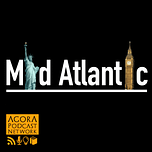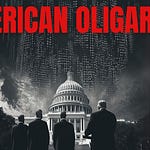Host: Roifield Brown, currently in Ottawa, Canada.
- Guest: George Laws Garcia from the Puerto Rico statehood council. With over 18 years of experience in public policy and government intergovernmental affairs. Advised governors, members of Congress, federal agencies, and national nonprofit organizations.
- Discussion Topics:
- Comparison of Washington DC's and Puerto Rico's drive towards statehood.
- The unique challenges both territories present to the U.S. and its governance.
- The role of the Puerto Rico Statehood Council in advancing equality and democracy for Puerto Rico's U.S. citizens.
- The civil rights issue surrounding Puerto Rico's status and the limitations faced by its citizens.
- The history of U.S. territories and their journey to statehood.
- The 2020 non-binding plebiscite in Puerto Rico where 52.5% voted for statehood.
- The internal politics of Puerto Rico and its alignment with U.S. political parties.
- The work of the Puerto Rico Statehood Council and its efforts to educate and advocate for statehood.
- Puerto Rico's recent challenges, including its fiscal debt crisis and the aftermath of hurricanes Irma and Maria.
**Key Takeaways:**
- Puerto Rico's journey towards statehood has been long and complex, with many factors influencing its current status.
- The Puerto Rico Statehood Council plays a crucial role in advocating for statehood and educating the public about the importance of this issue.
- Puerto Rico's status as a territory has significant implications for its citizens, who face limitations in representation and rights.
- The internal politics of Puerto Rico are influenced by its status issue, with various parties representing different views on statehood, independence, and the current territory status.
- Recent events, such as the fiscal crisis and natural disasters, have brought Puerto Rico to the forefront of national discussions, highlighting the need for change and support.
Three memorable quotes :
"America was founded on the principle of government by consent of the governed. It's enshrined into the Declaration of Independence, and the U. S. Constitution is a legal mechanism that basically sets up a structure where citizens can have a say in the government that makes the laws that they live under."
"So every single day, the 3.2 million US citizens in Puerto Rico are subject to federal laws that impact everything from labor laws, international commerce trade and finance, banking environmental issues, you name it."
"In my sense, I believe that if Puerto Rico were to become a state, It would be a toss-up state. It's going to be a battleground state."
Hosted on Acast. See acast.com/privacy for more information.














Share this post